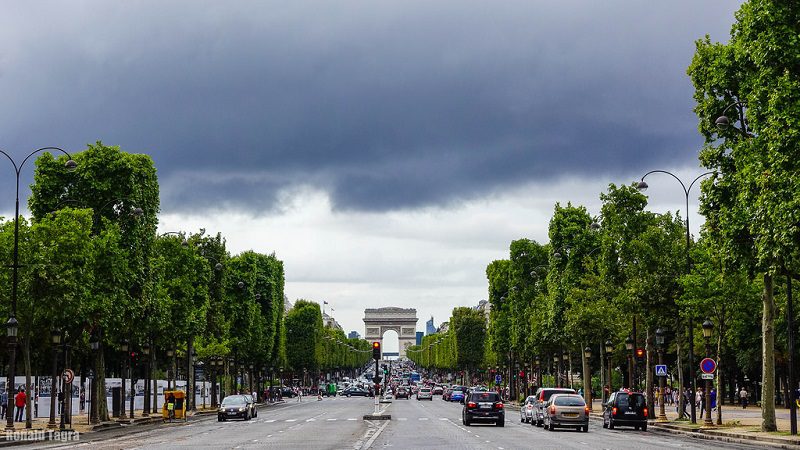September’s “day without cars” in Paris, France demonstrates what happens when bikes are put first
Last weekend's "day without cars" in Paris, France opened the streets to cyclists in unprecedented ways, making the city a veritable playground for anyone -- of any age -- in the saddle.


Last weekend’s “day without cars” in Paris, France opened the streets to cyclists in unprecedented ways, making the city a veritable playground for anyone — of any age — in the saddle. And for the rest of the world, it seems to have proven a resonant point about the value in putting bikes, not cars, first.
The experiment, which closed only parts of the city’s streets to cars, caused a dramatic drop in air pollution.
According to the UK’s the Guardian, Airparif, an organization tasked with monitoring pollution levels, reported that there was a 40% drop in levels of nitrogen dioxide throughout the city last Sunday, September 27. On the bustling, crowded Champs Elysees, for example — the finishing route of the Tour de France, and one of the busiest corridors in the French city when it comes to vehicle traffic — a third less pollution was measured than on a given weekend.
Locations along the River Seine, meanwhile, saw nitrogen dioxide levels down 40%, too, with a recorded 20% drop near the Place de l’Opera.
Before last Sunday’s car-free day started — the first of its kind — there was disappointment that Paris police wouldn’t allow the ban to apply to the entire city. With the hard numbers indicating its resounding, encouraging success, though, the fact that only 30% of Paris was off-limits to driving underscores just how substantial that success really was. A precedent now set, city authorities at the highest level, the Guardian reported, are considering more regular, less occasional ideas.
Anne Hidalgo, Paris’s environmentally-crusading mayor, is one of them. With pollution having been a long-standing, worrying problem in the densely-populated French city, the results of Paris’s car-free day have prompted her to consider introducing a regular city-wide vehicle ban.
“We might envisage days without cars more often,” she said on Twitter, “perhaps even once a month.”
Paris’s experience with partly shutting down to all but bike-mounted or pedestrian traffic ranks the city among other world municipalities that have done the same, including several Canadian locations. Since 2002, Ottawa, Toronto, Vancouver, Montreal, Winnipeg, and other cities have dedicated a day on the calendar to encouraging more human-powered transportation, like cycling, instead of driving.
